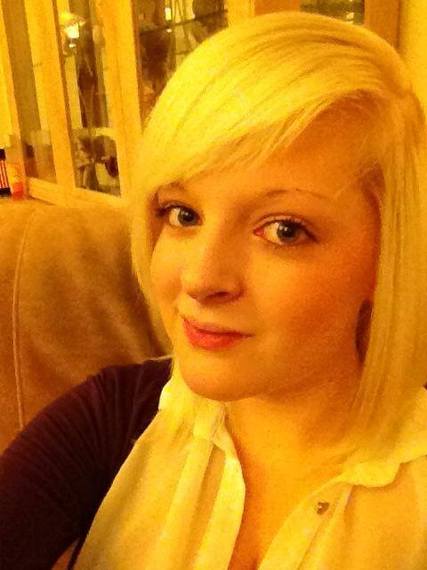Over the years, I've shared stories with maybe 100 or so parents whose children, like my own daughter, have or have had a brain tumor. Many parents say that it took weeks, or even months, for their children to be correctly diagnosed. That's because the symptoms of brain tumor -- headache, vomiting, double vision, weakness and numbness -- mimic significantly less serious and more common disorders. And in some cases, delays are due to children being too young to articulate the full spectrum of their symptoms.
In our case, we were one of the "lucky" ones -- although I hesitate to use that word because my child died, albeit five years after diagnosis.
My daughter Natasha, then 7, was diagnosed with a brain tumor the day I took her to an optometrist to investigate the double vision she had recently started to complain about. After dilating her pupils, the optometrist identified papilledema, a swelling of the optic disc, which is a red flag for brain tumor. We were referred to ER, where she was promptly scanned, diagnosed and scheduled for surgery.
In a different country, a different Natasha had a very different experience. Over a period of one year, 16-year-old Natasha Simmonds of Radstock in Somerset, England, made 24 visits to 13 pediatricians, general practitioners and ER doctors to report headaches, numbness, back pains, vomiting and problems with her eyesight. None of the doctors ordered a crucial MRI.
At one visit an ER doctor accused the teen of "putting the symptoms on," and refused to order a scan because they said they were reserved for life and death situations, said her mother in an article published earlier this month in the Daily Mail.
When an MRI eventually took place, 11 months after a specialist pediatrician had first seen her and two months after it was ordered, Natasha was found to have a disseminated oligodendroglioma-like leptomeningeal tumor. She died eight days later.
There's a number of disturbing issues here. If an MRI was denied, why didn't the doctors order a CT -- a less detailed scan that is easier to perform, quicker and cheaper. If the tumor had been identified when she first sought medical help, would Natasha be alive today? (While the prognosis is poor for a leptomeningeal tumor -- cancer that has spread from the original tumor to the tissues that cover the brain and spine -- that is not the case for oligodendroglioma. If this tumor type is treated before it has disseminated, the chance of long-term survival is between 80 to 100 percent, according to St. Jude Children's Research Hospital.)
But what is most startling are the conclusions from officials. At the inquest into Natasha's death, Coroner Maria Voisin was quoted in the Daily Mail as stating that there was no need to make a formal recommendation for changes at the hospital that failed to diagnose her tumor until it was too late.
And a spokesperson for that hospital, Royal United Hospital Bath NHS Trust, was quoted as saying: "In the next few weeks, many of the clinicians who looked after Natasha will be meeting to discuss this sad case and ensure that any opportunities for learning are not missed."
In the next few weeks? This sad case? Any opportunities for learning are not missed? Shame on you, Royal United Hospital Bath, for deflecting your own ineptitude and reducing the loss of a young life to a "sad case."
Let's try that statement again: "All clinicians who looked after Natasha will be meeting as soon as possible to review this tragedy. We will study the flaws in the system and human errors that led to the failure of 13 doctors to order a diagnostic MRI that would have resulted in emergency treatment earlier in the disease's progression. New recommendations will be implemented to ensure that in future, scans are not withheld from patients with potentially life-threatening conditions."
And by the way, accusing a patient of "putting the symptoms on"? Rude and unprofessional!
Natasha died after two emergency operations on her brain and spine. Her mother, Sarah Simmonds, told the Daily Mail: "We'll never know what would have happened if she'd been given an MRI scan when we first asked for one. At the very least she wouldn't have died so suddenly and so frightened."
This heart-wrenching statement prompts a question: Where's the outcry -- from Natasha's community, from politicians, from patients' rights groups? Unlike in the U.S., health care in the U.K. is covered by the beleaguered National Health Service. Perhaps because it's "free," people are more accepting of what's dished out to them, the good and the bad. The seeking of second opinions, traditions of self-advocacy and partnering with one's physician, might be customs that are borne out of our own imperfect health care system, which usually comes at a hefty price tag.
Maybe. Maybe not. But unless there are serious omissions in the reporting of this story, 13 doctors seem to have got off with few questions asked.

Natasha Simmonds, courtesy of Facebook
This post was first published in The Mourning After Natasha.